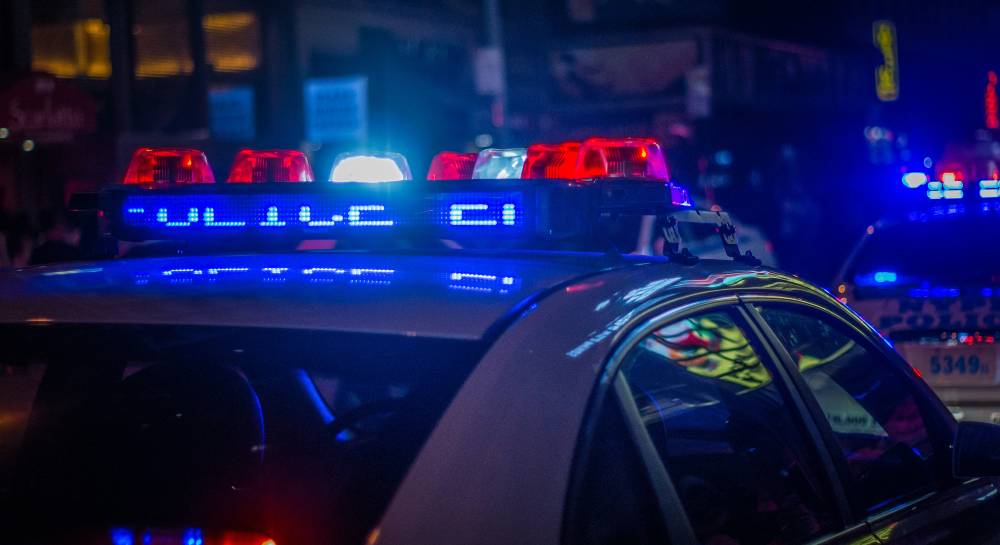
Carrying an open container in a motor vehicle is a misdemeanor offense in Texas. This offense is punishable by a citation and is not, by itself, punishable by arrest.
However, an open container citation can accompany a drunk driving or driving while intoxicated charge, which carries more severe penalties and is punishable by arrest.
A drunk driving conviction can temporarily affect your driving privileges and permanently impact your employment opportunities, especially if your work involves driving.
If you are facing charges for violating open container laws or DWI in Texas, contact a South Texas DWI lawyer at Austin Hagee Law Firm to discuss your case. We are based in San Antonio and service cases throughout the State of Texas.
What Is the Open Container Law in Texas?
The Texas open container law makes it illegal to have an open container of alcohol in the passenger area of a vehicle on a public highway. An open container includes any bottle, can, or receptacle that is open, has been opened, or has a broken seal. A violation is a Class C misdemeanor with a fine up to $500.
The passenger area means the area of a motor vehicle designed for seating of the operator and passengers. It does not include:
- Glove compartments or similar locked storage containers;
- Trunks; or
- The area behind the last upright seat of the vehicle, if it does not have a trunk, such as an SUV.
Public highway means the entire width between and immediately adjacent to the boundary lines of any public road, street, highway, interstate, or other publicly maintained way if it is open for public use for the purpose of motor vehicle travel.
Therefore, private properties like movie theater and department store parking lots fall under this category. You can even receive a ticket for an open container if your vehicle is in park. Certain exceptions apply to tailgating activities at sporting events.
What Is Considered an Open Container?
An open container is defined as a bottle, can, or other receptacle that contains any amount of alcohol and that is open, has a broken seal, or the contents of which are partially removed.
Therefore, a wine bottle with a cap on it is still an open container, just like an open beer bottle. Other examples include any of the following, containing a trace of alcohol:
- Water bottles,
- Flasks,
- Thermoses, and
- Open cans.
An item is no longer an open container if it does not contain any amount of alcohol. During the COVID-19 pandemic, Texas made it legal for restaurants to allow you to take sealed to-go drinks.
These drinks must be fully sealed and cannot have the seal, bag, or sticker removed at any time. If the seal is broken, then you could receive an open container citation.
Exceptions to the Open Container Law in Texas
The statute outlining possession of an open container in a motor vehicle outlines certain exceptions where the open container is permitted. The exceptions include:
- In the passenger area of a motor vehicle designed, maintained, or used primarily for the transportation of persons for compensation, including a bus, taxicab, or limousine; or
- The living quarters of a motorized house coach or motorized house trailer, including a self-contained camper, a motor home, or a recreational vehicle.
- Texas House Bill 1024, makes it legal for alcoholic beverages to be transported in tamper-proof containers sealed by the retailer and properly labeled when sold. If the drink contains spirits, it must be labeled with “alcoholic beverage” to comply with the law.
Therefore, open alcoholic beverages are not always prohibited in motor vehicles.
Penalties for an Open Container in Texas
Possession of an open container in a motor vehicle is a Class C misdemeanor. A Class C misdemeanor is punishable by a fine of up to $500. If someone possesses multiple open containers at the same time, it is considered a single criminal offense.
In some cases, an open container charge accompanies a drunk driving or driving while intoxicated charge. A DWI conviction in Texas can result in jail time and the loss of your driving privileges for a period of time.
Also, having an open container may cause an officer to wrongly believe you are intoxicated and charge you with DWI, even if you were not legally intoxicated at the time of the offense.
How to Get an Open Container Ticket Dismissed
To have an open container ticket dismissed in Texas, you can plead not guilty, which typically means you will need to go to court. In this case, hiring a lawyer is often beneficial, especially if the ticket is linked to a more serious charge like DUI. A lawyer can help you navigate the legal process and potentially have the ticket dismissed.
In some cases, a valid legal defense can help your lawyer negotiate with the prosecutor to dismiss your citation.
Potential defenses include:
- The open container did not contain any alcohol;
- The container was empty;
- The container was being carried in compliance with Texas law;
- Law enforcement found the open container outside of the passenger area; or
- The container was not open.
A legal defense may not apply in every scenario. An experienced attorney can review your case to determine whether a valid legal defense applies.
What Should I Do If I Get Pulled Over with an Open Container in Texas?
There are a few things you should avoid if you see flashing lights in your rearview mirror while there’s an open container of alcohol in your vehicle.
Do Not Try to Flee From Law Enforcement
An open container offense is a minor criminal charge that is not a jailable crime. The last thing you want to do is give officers a reason to charge you with other crimes, such as evading. Evading in a motor vehicle is a felony, and it would not be advisable to get that charge for a ticketable offense.
Even if you know an open alcoholic beverage is in the car, you should pull over immediately if an officer attempts a traffic stop. Once you pull over, do not try to conceal the open container or throw it outside of the vehicle.
Do not give law enforcement a reason to believe you are reaching for a weapon or posing a risk to the officers. Trying to destroy or conceal the alcohol could be seen as tampering with evidence, which is also a higher level charge.
Remember Your Right to Remain Silent
Police officers frequently make small talk with drivers after a traffic stop. If they find an open container in your car, they will likely try to elicit statements to determine whether there is probable cause to charge the driver with driving under the influence (DUI) or driving while intoxicated (DWI).
Beyond answering basic questions regarding your identity, you should politely refuse to answer any questions and exercise your right to remain silent. Remember, you are not required to answer questions about where you are going or coming from. Discussing unnecessary details with police officers can land you in more trouble.
Contact a Lawyer Before Interviews with Police Officers
Despite the common misconception, hiring an attorney does not mean you are guilty. Hiring a lawyer means you care about minimizing the impact of a criminal charge and maximizing your future potential case options.
You should not participate in a police interview until you hire a criminal defense attorney to represent you. An attorney can prevent you from incriminating yourself during the interview and answer questions on your behalf.
Contact an Open Container Lawyer in Texas at Austin Hagee Law Firm to Discuss Your Case
Our criminal lawyers at Austin Hagee Law Firm know the tactics district attorneys use to secure convictions because our team has worked as former prosecutors. We use this inside knowledge to fight relentlessly for our clients’ rights.
Collectively, our team has over a decade of experience successfully helping people who are facing criminal charges in Texas.
We will use our knowledge and resources to fight for a favorable outcome, whether that be a dismissal, plea bargain, or trial. Contact Austin Hagee Law Firm today to schedule an appointment to review your case.
